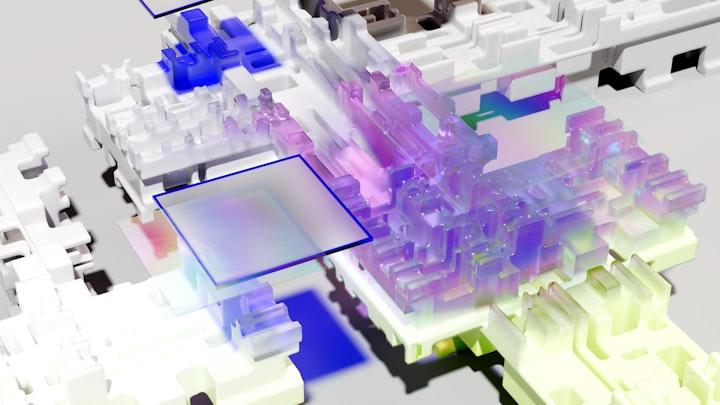
Introduction:
The human brain, with its intricate complexity, has captivated scientists for centuries. Among the many mysteries it holds, the concept of consciousness remains one of the most elusive. Our conscious reality, encompassing wakefulness and higher-level cognitive functions, has become a fascinating area of study within the field of neuroscience. This article delves into the neuroscience of consciousness, exploring theories, technological advancements, and the ongoing quest to unravel the profound relationship between neuronal activity and our subjective experiences.
Understanding the Fundamentals:
Consciousness is intricately linked to our state of alertness and wakefulness, which are modulated by the ascending regular activating system (ARAS). Comprising brain regions like the thalamus and brain stem, this network plays a crucial role in regulating our level of consciousness and awareness of the world.
Exploring Theoretical Frameworks:
Several theories have been proposed to shed light on the nature of consciousness. One prominent theory is the Global Neuronal Workspace Theory, which suggests that consciousness arises when information becomes globally available to multiple cognitive systems in the brain. This state is achieved through a network of neurons broadcasting signals across various brain areas, facilitating conscious awareness.
Another influential concept is the Integrated Information Theory, which posits that consciousness is a fundamental aspect of the universe. According to this theory, any system possessing a certain degree of "integrated information" can experience consciousness. This theory offers a unique perspective on the nature of conscious experiences and their relationship to neural activity.
Technological Advancements and Insights:
Technological advancements, such as functional magnetic resonance imaging (fMRI) and electroencephalography (EEG), have significantly contributed to our understanding of consciousness. These tools allow researchers to identify neural correlates associated with different conscious states, helping to unravel the intricate workings of the human mind.
Despite Progress, Challenges Persist:
While advancements have been made, the neuroscience of consciousness is still in its nascent stages. Unraveling how neural activity gives rise to subjective experiences remains a formidable challenge. The complexities of the brain and the nature of consciousness itself make this a frontier of scientific exploration that demands further investigation.
Conclusion:
The quest to understand consciousness and its neural underpinnings continues to captivate and challenge neuroscientists worldwide. Through the exploration of theoretical frameworks, technological advancements, and the study of neural correlates, we are gradually unraveling the enigma of consciousness. However, much work lies ahead to decipher the complexities of the human mind fully. As we delve deeper into the neuroscience of consciousness, we move closer to unlocking the secrets that shape our conscious reality and redefine our understanding of what it means to be human.
IMPORTANT INFORMATION IN LAST:
Recent advancements in neuroscience have brought us closer to unraveling the intricacies of consciousness. The ability to map neural activity and identify specific regions associated with conscious states has provided valuable insights into the underlying mechanisms of subjective experiences. Functional magnetic resonance imaging (fMRI) allows researchers to observe changes in blood flow and oxygenation, highlighting areas of the brain that are active during conscious awareness. Electroencephalography (EEG) records electrical activity, offering a temporal perspective on brain activity and its correlation with different conscious states.
While these technological breakthroughs have enhanced our understanding, challenges persist in comprehending the fundamental nature of consciousness. Theories like the Global Neuronal Workspace Theory and the Integrated Information Theory provide explanatory frameworks, but they do not offer a complete picture. The precise relationship between neural processes and subjective experiences remains elusive.
Moreover, consciousness is not a static phenomenon but a dynamic interplay of various cognitive processes. It encompasses perception, attention, memory, decision-making, and self-awareness. Understanding how these different aspects integrate and give rise to our conscious reality presents a complex puzzle that researchers are tirelessly working to solve.
The exploration of altered states of consciousness, such as those induced by meditation, psychedelic substances, or neurological disorders, offers valuable insights into the nature of consciousness. By examining the changes in brain activity and subjective experiences during these states, scientists can gain a deeper understanding of the neural mechanisms underlying consciousness.
In conclusion, the neuroscience of consciousness continues to captivate researchers, offering a glimpse into the inner workings of the human mind. Technological advancements and theoretical frameworks provide building blocks for unraveling this intricate phenomenon. However, the complete understanding of consciousness remains an ongoing quest, requiring interdisciplinary collaboration, innovative approaches, and further scientific exploration. With each breakthrough, we come closer to unlocking the mysteries of consciousness and expanding our knowledge of what it means to be conscious beings.





Comments
There are no comments for this story
Be the first to respond and start the conversation.